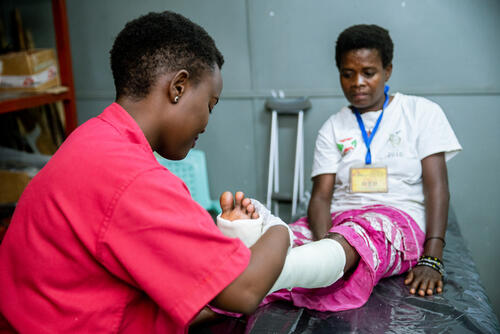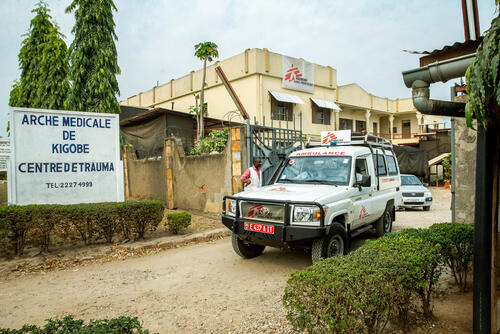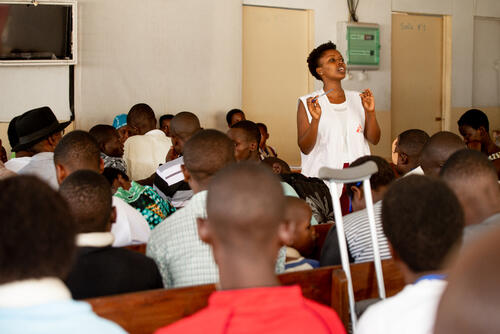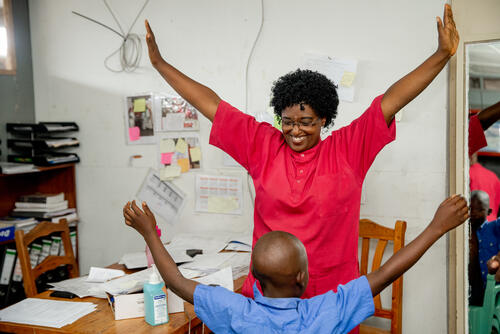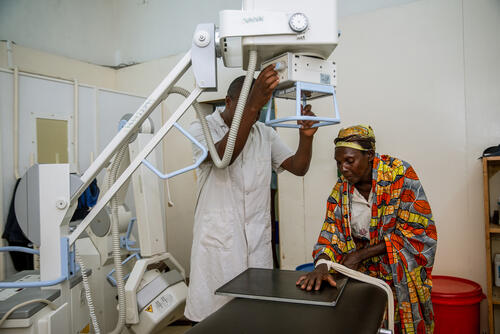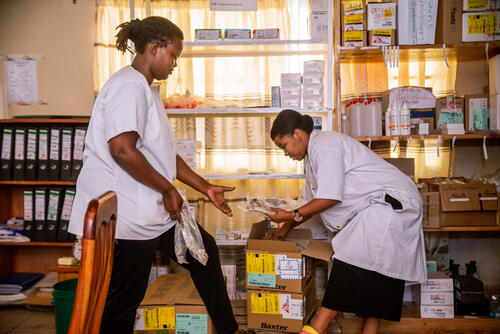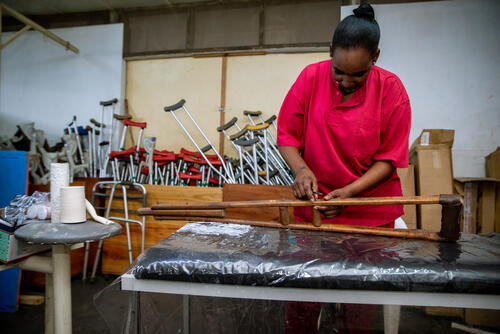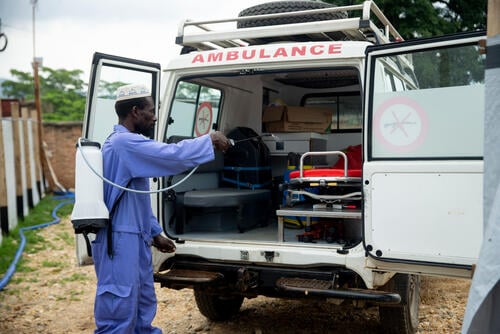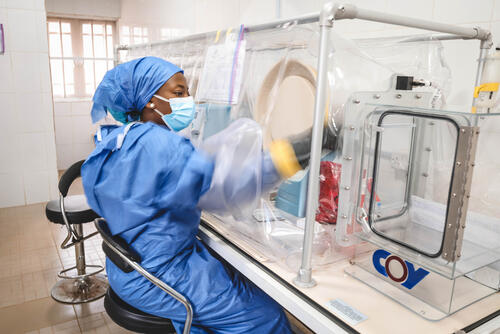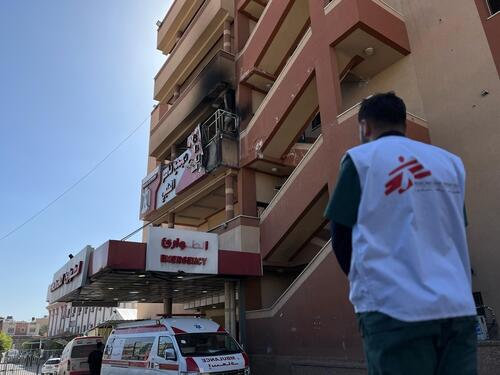It’s a bright August morning at Bwiza-Jabe hospital in Bujumbura, Burundi’s main city. A 20-year-old carpenter from the Bwiza neighbourhood arrives with a cut to his forehead caused by a sharp rock. A local nurse gives him first aid, supervised by Alain Muluvia, a nurse with Médecins Sans Frontières (MSF).
“This patient was hit by a stone thrown up by a fast-moving car,” says Alain. “We’ve given him first aid, but he needs internal and external stitches. Given the extent of the injury, we will transfer him to L'Arche de Kigobe.”
2,000 patients per month
L'Arche de Kigobe is a medical centre set up by MSF during the crisis that shook Burundi in 2015 to treat people with injuries sustained in the violence. The following year, as violence-related cases dwindled, we decided also to treat people with accidental injuries, after which patient numbers jumped from 200 per month to nearly 2,000. Now the centre mainly provides care for victims of road accidents, people with burns and victims of sexual violence.
“Our patients come from all over the country,” says MSF project coordinator Vincent Onclinx. “Currently, 90 per cent of them are victims of accidents, notably road accidents. Last year we conducted 22,400 emergency consultations and performed more than 4,000 surgeries – that's almost 11 a day.”
With more and more patients needing care, in June 2019, we decided to focus on those with complicated trauma injuries, sending patients with simple trauma injuries to two nearby partner hospitals – Kamenge and Bwiza-Jabe – and two health centres – Buterere II and Ngagara. MSF covers the cost of the patients’ care, while providing the health staff with training and other support.
Breaking down financial barriers
In Bwiza municipality of Bujumbura, MSF health promoter Nicole Niyoyankunze stands in front of a large crowd, megaphone in hand. Many of the people who live and work here are carpenters – a profession where work-related injuries are common. Nicole is running a group information session, telling people what to do if they get injured and where to receive treatment free of charge.
“In the structures we run and support, patients do not have to pay the costs of their treatment,” says Nicole. “This is an important advantage because the financial costs can constitute a significant barrier to care.”
Fisherman Abdoul Karim was hit by a car as he crossed the street. Brought to L’Arche de Kigobe, doctors operated on his arm. Two weeks later, he is recovering in one of the wards.
I'm only a fisherman - where could I have found the money to pay for all this?Abdoul Karim, patient
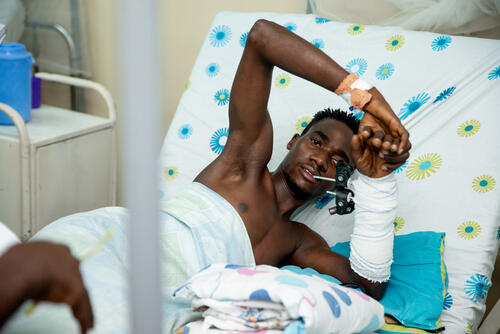
"When I woke up at L'Arche that day, I didn’t know where I was or how I got there,” says Abdoul Karim. “Then, I started to have glimpses of what happened: I remembered this car as I was crossing the street to sell my fish.”
Abdoul Karim’s memories of his accident may be sketchy, but he knows for sure that, without free treatment, he could never have afforded the surgery to fix his broken arm. “I was very lucky to be brought here,” he says.
“The doctors operated on me and took care of me just as if I was going to give them money. I’m only a fisherman – where could I have found the money to pay for all this?”
L’Arche de Kigobe’s 68 beds are always full, and the centre’s 240 Burundian staff and 12 international staff are always busy. As well as carrying out emergency surgery and orthopedic surgery, MSF teams provide physiotherapy and psychosocial support to help patients deal with their injuries, both physically and psychologically, so that once they leave hospital, they have the skills they need to get on with their lives.
Sounds of laughter and hand-clapping echo down the centre’s main corridor. In the ‘re-education room’, seven-year-old Amina is having her first rehabilitation session after spending a month in plaster with a double fracture to her leg. Her father looks on, delighted to see his daughter learning to walk again.



